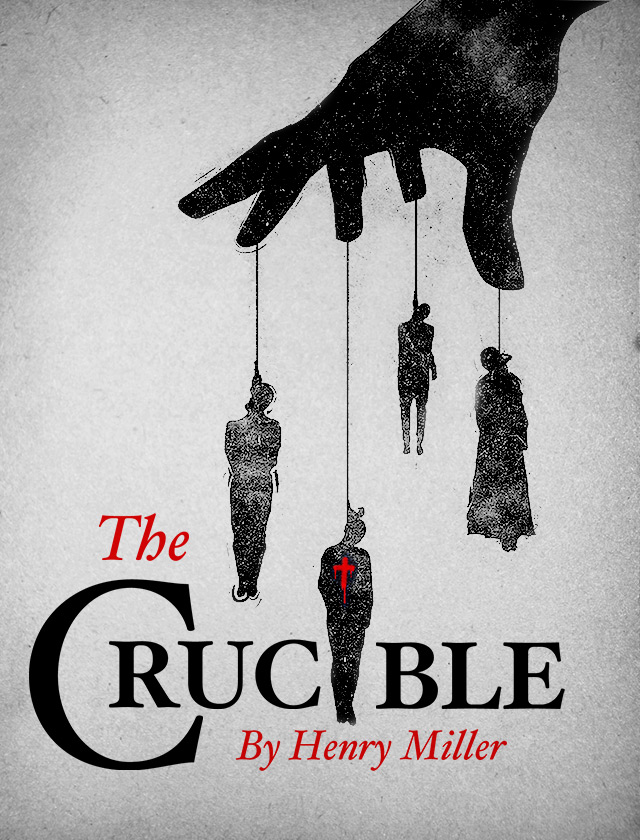The Crucible
by Arthur Miller
Introduction
Arthur Miller is one of America’s best-regarded playwrights. Death of a Salesman, written in 1949, is his most famous work, a somber masterpiece that won the Tony Award and later the Pulitzer Prize. Written several years later, The Crucible, while less of a commercial and critical success at first, has turned out to be his most produced play. Its strong stance in favor of individual liberty and integrity in the face of mass hysteria has made it relevant throughout the world.
Although Miller had encountered the real history of the Salem witch trials years ago as an undergraduate student, it was the modern-day witch trials led by crusading anti-Communist Joseph McCarthy and others that inspired him to try to take a relatively obscure episode from colonial history and turn it into drama. McCarthy was a U.S. senator who believed that the international Communist Party had succeeded in infiltrating American society and government at the highest levels, and made rooting out this influence the cornerstone of his political career. For a time in the early 1950s he had a significant national following and his accusations were taken seriously. However, the hearings he conducted into possible Communist influence in the Army backfired against him, and his credibility steadily declined. To this day, the term “McCarthyism” is used to denote accusations of disloyalty or subversiveness without regard to solid evidence or due process.
A parallel series of anti-Communist hearings (sometimes incorrectly associated with McCarthy) was held in the House of Representatives. The House Un-American Activities Committee (or HUAC) took a special interest in alleged Communist influence in Hollywood. In 1947, just as the nation was settling into a long cold war with the Soviet Union, the committee called a number of prominent actors, directors, and writers to testify. Miller didn’t have to work hard to see the parallels with Salem; one actor who cooperated with the committee declared, “I am a witch hunter if the witches are Communists.”...
Sign up to continue reading Introduction >